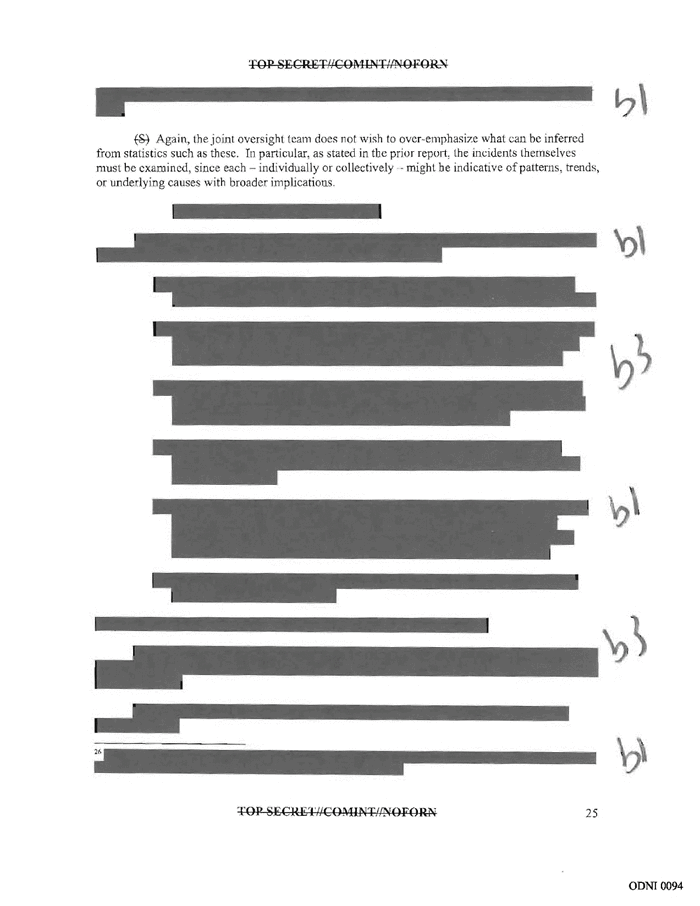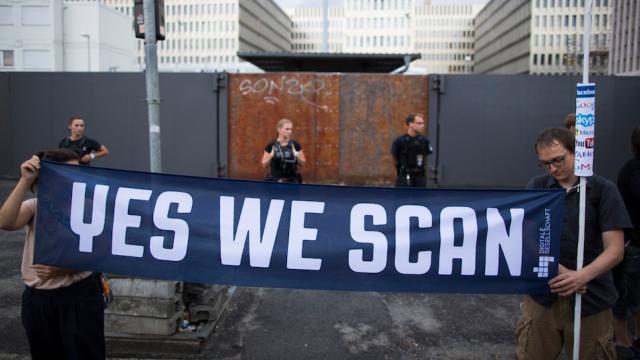Back in June, after the first reports based on Edward Snowden’s leaks were published, President Obama boldly defended the NSA spying programs. He even called them “transparent”. But boy oh boy have the folks over at the NSA let him down on that count.
Before getting into the latest with the agency, it’s important to remember NSA’s role. It’s a spy agency. Their job is to collect information related to threats on national security without those threats knowing it. So to complain that we don’t know enough about what the NSA’s doing is somewhat counterproductive. We can, however, hold them accountable. If the president points to the NSA as a transparent organisation, the agency should illustrate that. If the agency makes an effort to be more transparent, it should actually make an effort. Lately, we’ve seen that neither of those expectations are being met.
We’ve recently learned, for instance, that the NSA isn’t very good with numbers. On Tuesday night, a Wall Street Journal report went into alarming detail about how much of the internet the NSA actually has access to. Thanks to its dubious-sounding relationships with major telecom companies, the spy agency can monitor up to 75 per cent of US internet traffic, through programs with codenames like Blarney, Fairview and Lithium. That’s well north of the previous estimate of 1.6 per cent of world internet traffic, especially since the US accounts for such a large share of the global total. And even that figure is off since the NSA screwed up its maths and reported a number that’s as much as 10 times lower than it should be.
Bad maths is one thing, but have you been paying attention to how the NSA treats words? It treats like them like they simply don’t exist when it suits their needs. The Washington Post dropped some jaws last week when it reported on the thousands of privacy violations the NSA wilfully commits every year. This rattled not only readers but also the NSA who held a rare conference call to address the concerns afterward and called the violations “not malicious”. But you wouldn’t know either way from the NSA’s semiannual report to Congress on those violations. The latest one is redacted so heavily, it’s hard to find a complete sentence:

On one hand, it’s nice to see that the NSA is trying to be a little bit more transparent by releasing some numbers and not redacting the entirety of its reports. On the other hand, it’s insulting that officials who’ve promised more openness in the government point to the NSA as a “transparent” organisation. The place is famously opaque. Again, it’s a spy agency, one that deals in the currency of secrecy, and so we ought to temper our expectations accordingly. However, if the NSA is truly trying to be more transparent, it’s doing an pretty awful job.
Inevitably, building a more transparent NSA is a tricky challenge. While it’s reasonable to assume a certain amount of top secret activity will take place, it’s also reasonable to expect the agency would keep Americans better informed about those activities that affect their lives. The NSA could also improve communications with lawmakers like Senate Judiciary Committee Chairman Patrick Leahy who recently said that he remains “concerned that we are still not getting straightforward answers from the NSA”. Reports covered in black lines do not count as straightforward answers. And while it’s a nice gesture, declassifying John Nash’s crazypants letters to the NSA doesn’t count either.
There is some semblance of hope though. Despite his earlier statements defending the NSA, President Obama recently ordered a set of reforms to the country’s spying operations, including a call for more transparency from the intelligence community and even the Department of Justice. “It’s not enough for me as president to have confidence in these programs,” Obama said at a press conference. “The American people need to have confidence in them, as well.” Well, that’s a start. [ProPublica]
Picture: AP
